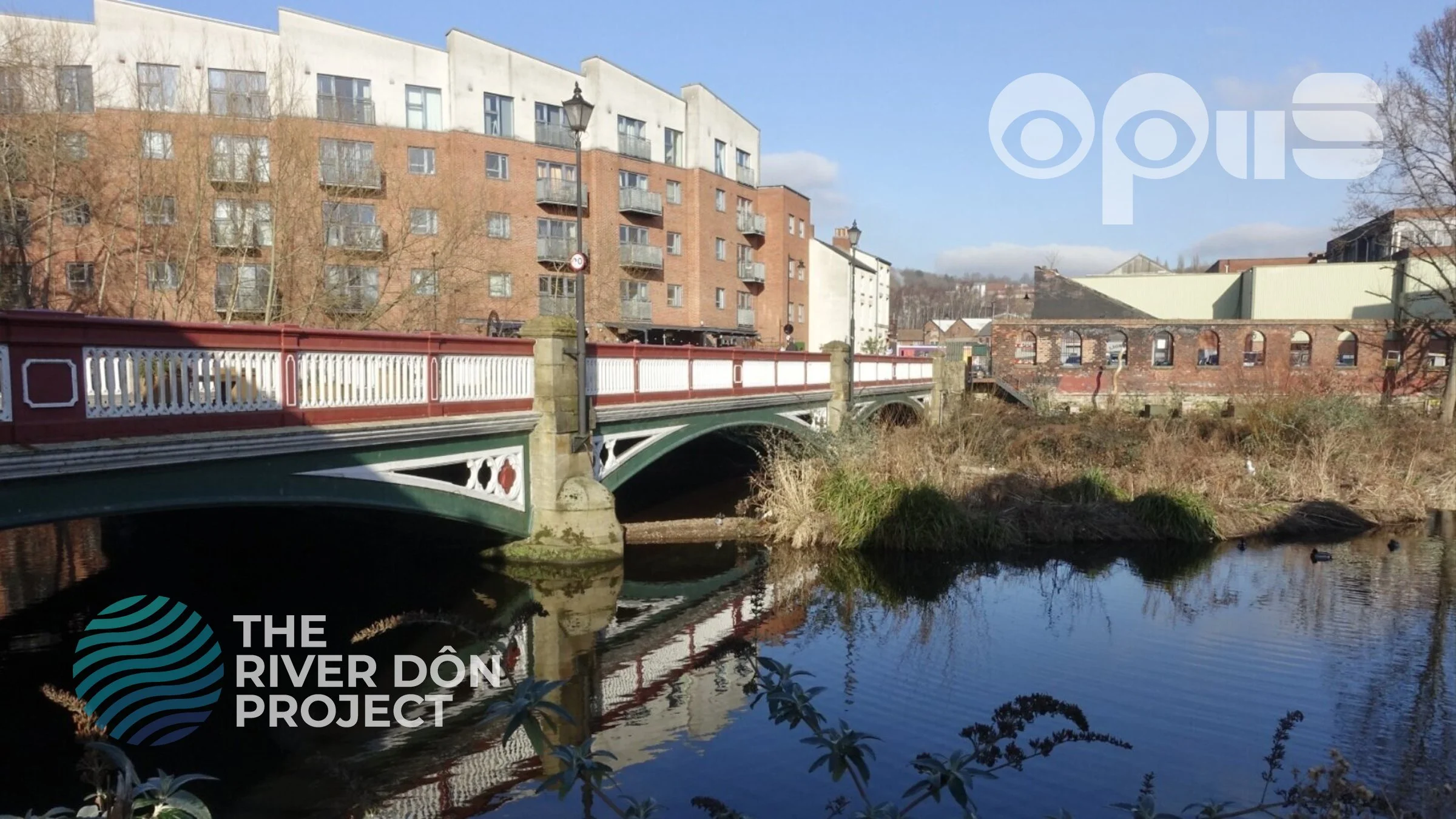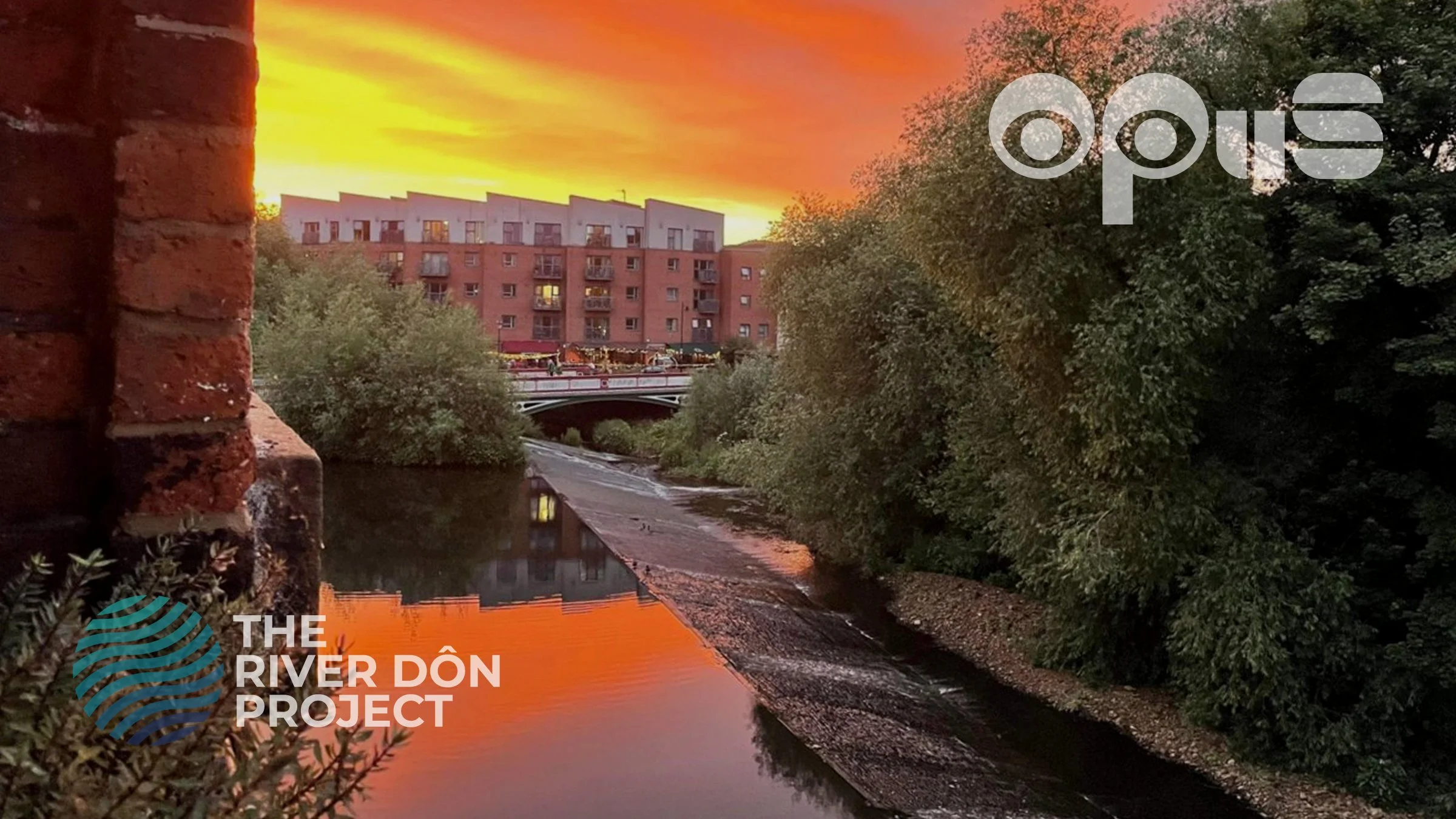
Connecting Limbs: Meet the project which aims to bring life back to Sheffield’s nature-depleted rivers
Connecting Limbs: Meet the project which aims to bring life back to Sheffield’s nature-depleted rivers
Along the River Sheaf, scientists and engineers are exploring how to mimic natural processes in heavily urbanised environments.
"In urban areas, I think it's almost just this given that the river has never been anything before it was an urban river"

“The River Don has a right to thrive in its own right, because it's alive and it's something we should deeply respect” ~ Dr Joanna Clare Dobson
Dr Joanna Clare Dobson is a writer, researcher, artist and allotment-holder based in Sheffield. Her academic work focuses on the role the more-than-human world plays in narratives around trauma, as well as exploring the intersections between grief and nature.
The sudden death of her seven-year-old brother Simon when Joanna was ten was a formative influence on her work, leading her to look at what goes unsaid in moments of deep loss. This is a theme she carries over to her work on nature, particularly the silences that all-too-often surround the destruction of the living world.

What does the River Don mean to the people of Sheffield?
Four people who live and work alongside the Don explore their relationship to the river and how it could be better cared for, as well as the positive and negative impacts it has on their lives.
Rivers are powerful beings. They can make or break our towns and cities – many ancient settlements are only where they are because they were founded on the banks of a river, which centuries later may in turn threaten our homes with deadly floods.
Cities around the world are defined by their rivers: think of the Seine in Paris, or London’s Thames. Like many cities, Sheffield is named after one of its rivers: the Sheaf, which like the Loxley, Rivelin and Porter eventually joins the Don at Castlegate.

The Rights of Nature: A call for a policy of mutually assured flourishing
The new Labour government faces numerous, interconnected crises along economic, social and environmental nexuses. Policies intended to address issues such as the cost-of-living, healthcare and housing crises are receiving particular attention. Parties have presented narratives around the ecological crisis, such as a significant expansion of renewable energy and reduction of carbon emissions; these are vital, necessary starting points. However, the current discourse is shallow and fails to grapple with the root causes of an operating system that is ultimately self-terminating. We contend that a truly sustainable and regenerative social-ecological transformation must transcend the status quo and fundamentally shift our ontology (ways of being and relating).

"I connect to the water through the heart now – rather than through the head" ~ Kate Faulkes
Canal resident and History and Archaeology PhD student Kate Faulkes tells us about living in a boat and how it has changed her relationship to water.
Kate Faulkes is a History and Archaeology PhD student who lives on a boat on the Sheffield Tinsley Canal. In this generative interview Kate tells us about her new connection to water and seeing it as a living entity, and how she thinks we can form better relationships with our waterways.

"The Don is something that's going to last way beyond me – us – and that's comforting" ~ KINCA
Kelham Island & Neespend Community Alliance's Yvonne and Rob spoke to us about the Don's industrial heritage and how we can build access, connection and understanding to the river.
Yvonne McMenemy and Rob McMenemy are members of Kelham Island & Neespend Community Alliance (KINCA), which exists to improve and develop those areas of the city with engagement from the community. Historically and to this day, the area is characterised by its deep association with the River Don. From their home in the city centre, Yvonne and Rob see the river every day.

"It needs to be collective engagement to build a social contract with the river" ~ Ahmad Yazan Miri
Activist Yazan talks about the role and importance of history, culture and community in rebuilding our relationship with nature.
Ahmad Yazan Miri is an activist, nature enthusiast and former Youth4Nature Global Ambassador. He grew up in Aleppo in Syria, where he spent a significant part of his life living in a war zone, before moving to the UK and settling in Sheffield.
Yazan is passionate about advocating for the voices of future generations in nature and climate related matters, particularly young people from the most marginalised communities.

"I think the idea of being next to water is transformative" ~ Ella Barrett
We spoke to archivist and curator at the Bantu Archive Programme Ella Barrett about the connections between Sheffield's Yemeni community, the River Don and the Sheffield & Tinsley Canal, and how being near water can offer a radical act of healing.
Ella Barrett is an archivist and curator at the Bantu Archive Programme, a project based at SADACCA which celebrates the journeys and heritage of African and Caribbean people in Sheffield. Since it was founded in 2020, this has taken the form of photography, archive work, artistic responses, film-making, events and even a combined club night and audio-visual exhibition.

“The Don has been used and abused – but water gives life" ~ Owen Hodgkinson
Community Organising Manager at Sheffield & Rotherham Wildlife Trust Owen Hodgkinson tells us how his work brings him into contact with the River Don, and thinking about nature equity, multi-species justice and new ways of valuing the natural world.
I'm a Community Organising Manager at the Sheffield & Rotherham Wildlife Trust, and that takes me into work with a wide array of communities represented across Sheffield and Rotherham.
And some of the movement building work that we do is outside the sphere of traditional conservation activities on our nature reserves.

